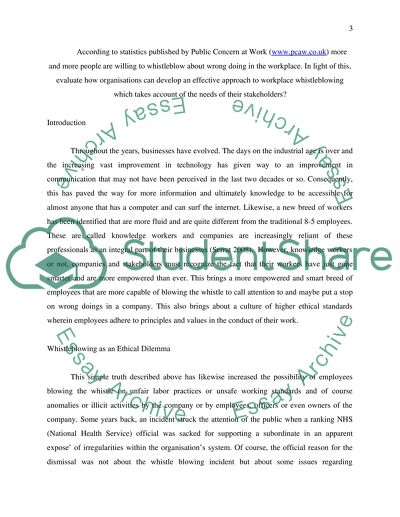Cite this document
(“Ethics n whistleblowing Outline Example | Topics and Well Written Essays - 2750 words”, n.d.)
Retrieved from https://studentshare.org/gender-sexual-studies/1411567-ethics-n-whistleblowing
Retrieved from https://studentshare.org/gender-sexual-studies/1411567-ethics-n-whistleblowing
(Ethics N Whistleblowing Outline Example | Topics and Well Written Essays - 2750 Words)
https://studentshare.org/gender-sexual-studies/1411567-ethics-n-whistleblowing.
https://studentshare.org/gender-sexual-studies/1411567-ethics-n-whistleblowing.
“Ethics N Whistleblowing Outline Example | Topics and Well Written Essays - 2750 Words”, n.d. https://studentshare.org/gender-sexual-studies/1411567-ethics-n-whistleblowing.


